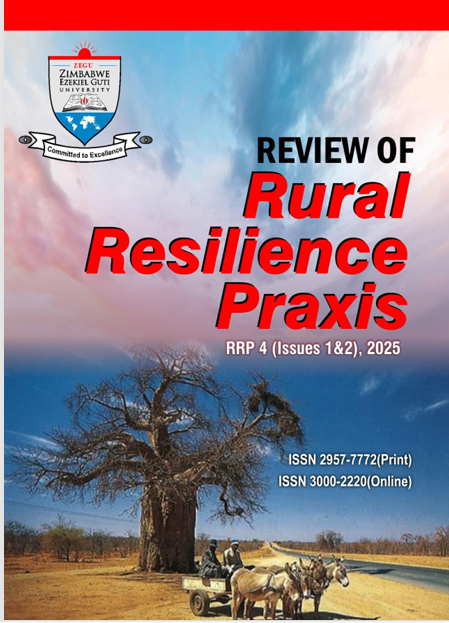The Right to be Rural: A Discussion with Reference to Africa
DOI:
https://doi.org/10.71458/9g67gd98Keywords:
livelihoods, peri-urbanisation, communal land, governments, counter-urbanisation, rural development planningAbstract
The study examines the concept of being rural in the context of Africa, particularly in light of the expansion of unplanned peri-urban settlements encroaching on rural areas. Rural communities in Africa have been threatened by the outwards growth of urban areas and the illegal sale of communal lands by village heads, leading to the disappearance of rural livelihoods in the process. The study problematises the lack of rural development and planning which are causing the loss of the right to be rural due to the development of peri-urban centres and counterurbanisation, leading to the failure of communal livelihoods. The research employs a qualitative research methodology with a case study design. The study utilises secondary data, sourced from Google Scholar articles and news reports. The research employs thematic data analysis as the method of data analysis to examine the study's findings. The study findings reveal that the right to be rural is slowly disappearing in Africa as evidenced by the growth of peri-urbanisation. The study concludes that it is upon African governments to initiate rural development and planning initiatives that protect communal lands and give ownership to residents. The study recommends the implementation of policies that reduce illegal sale of communal lands.




